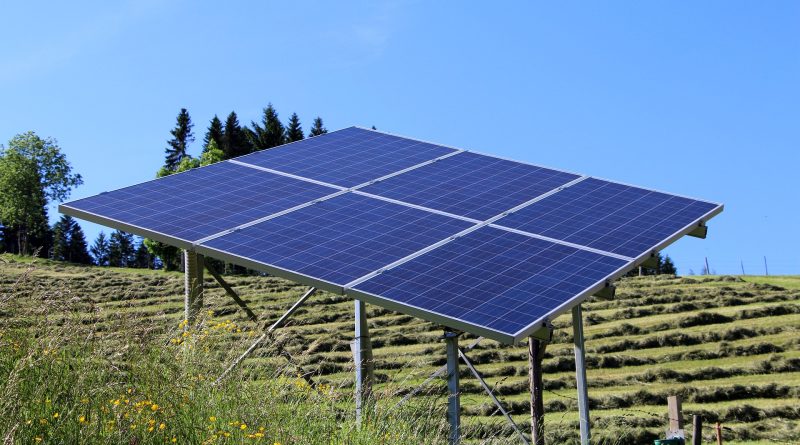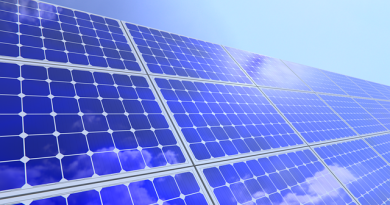Solar Panel Cost Estimate 2024: A Comprehensive Guide
Solar energy has seen a remarkable surge in popularity in recent years, as individuals and businesses recognize the economic and environmental benefits of harnessing the power of the sun. However, one crucial factor that often comes into consideration is the cost of solar panels.
As with any technology, the cost of solar panels is subject to fluctuations and changes depending on various factors such as supply and demand, technological advancements, government incentives, and market trends. In this blog, we will explore how to estimate the cost of solar panels in 2023, guiding you through the key factors and considerations that will influence this cost.
Table of Contents
1. The Role of Technological Advancements
Technological advancements play a vital role in driving down the cost of solar panels. Over the past decade, we have witnessed significant improvements in the efficiency of solar panels, making them more affordable and accessible. In 2023, it is expected that there will be continued advancements in solar panel technology, leading to increased efficiency and lower production costs. These advancements could include innovations in the materials used for solar cells, improved manufacturing processes, and increases in cell efficiencies.
2. Supply and Demand Dynamics
The supply and demand dynamics of solar panels have a significant impact on their cost. As the demand for solar panels continues to grow, manufacturers are likely to increase their production capacities to meet this demand. This increased production can lead to economies of scale, resulting in lower manufacturing costs and consequently reducing the overall cost of solar panels. On the other hand, any disruptions in the supply chain or increased demand without corresponding production capacity could temporarily raise prices.
3. Government Policies and Incentives
Government policies and incentives also play a crucial role in determining the cost of solar panels. Many governments incentivize the adoption of solar energy by offering subsidies, tax credits, grants, and favorable financing options. These measures can significantly reduce the upfront cost of solar panels, making them more financially attractive. Since government policies are subject to change, being aware of current and potential future policies is essential for estimating the cost of solar panels in 2023.
4. Market Trends and Competition
Market trends and competition are other factors that impact the cost of solar panels. As the solar energy industry continues to grow, more companies are entering the market, increasing competition. This competition drives innovation and forces manufacturers to offer more cost-effective solutions to gain a competitive edge. In 2023, we can expect the solar panel market to remain highly competitive, leading to more affordable options for consumers.
5. Installation Costs
When estimating the cost of solar panels, it is vital to consider installation costs. The cost of installing solar panels can vary based on several factors such as the complexity of the installation, the type of roof, access to sunlight, and local labor costs. While the cost of solar panel installation has been decreasing over time, it is essential to research and obtain quotes from reputable solar installation companies in your area to have a more accurate estimation of this expense.
6. Return on Investment
While the upfront cost of solar panels is a significant consideration, it is equally important to assess the long-term benefits and return on investment (ROI) they provide. Solar panels enable you to produce your own electricity, reducing or eliminating your reliance on traditional energy sources. This can lead to significant savings on your electricity bills over the lifespan of the solar panels, usually around 25 to 30 years. Additionally, solar panels can increase the resale value of your property, making them a worthwhile investment.
Conclusion
Estimate solar panel costs in 2024 with SolarClue® as your comprehensive guide. Understand the influencing factors such as technology, efficiency, and brand for accurate cost estimation. Gain insights into the latest pricing trends, considering market fluctuations and technological advancements. Optimize your investment by selecting the right technology, brand, and system size. Stay updated on market trends and price fluctuations. Explore financing options and government support. Receive guidance on potential challenges and hidden costs. Trust SolarClue® to educate you on the latest advancements and estimate your return on investment. Join our community for shared experiences and ongoing learning. Rely on SolarClue® for transparent and informed solar decisions in 2024.
Frequently Asked Questions
SolarClue® considers factors such as technology, efficiency, and brand to estimate the cost of solar panels in 2024, providing users with comprehensive insights for accurate project cost estimation.
SolarClue® offers insights into the latest pricing trends of solar panels in 2024, taking into account market fluctuations and technological advancements that can impact the overall cost.
SolarClue® guides users in optimizing the cost-effectiveness of solar panel installations in 2024, providing advice on selecting the right technology, brand, and system size for maximizing the return on investment.
SolarClue® provides information on current market trends and price fluctuations of solar panels, ensuring users stay updated on the latest developments that may impact the installation cost in 2024.
SolarClue® offers insights into government incentives and subsidies for solar panel installations in 2024, providing details on eligibility criteria, application processes, and recent updates to help users maximize financial support.
SolarClue® addresses concerns about potential hidden costs or challenges during solar panel installations, offering guidance on preventive measures and tips to ensure users are well-prepared for the entire process in 2024.
SolarClue® educates users on different financing options for solar panel installations in 2024, covering upfront payments, loans, and leasing models, enabling users to choose the most suitable financial arrangement.
SolarClue® stays informed about the latest technological advancements in solar panel systems, incorporating information on innovative features and improvements that may impact the installation cost or efficiency in 2024.
SolarClue® assists users in estimating the return on investment (ROI) for their solar panel installations in 2024, considering factors like electricity savings, maintenance costs, and overall financial benefits.
SolarClue® fosters a community where users share experiences with solar panel installations in 2024, facilitating knowledge exchange and creating a collaborative platform for ongoing learning and insights.




